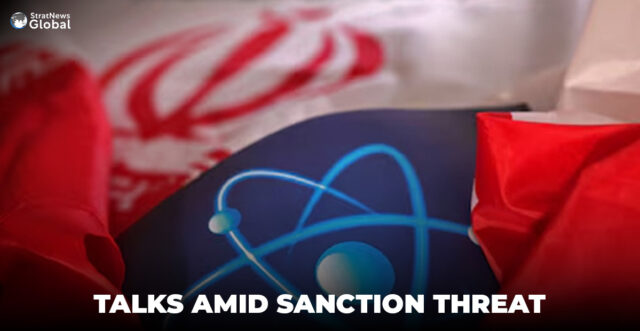Iran, Britain, France, and Germany will meet for nuclear talks in Istanbul on Friday, an Iranian Foreign Ministry spokesperson announced on Monday, following European warnings that failure to resume negotiations could trigger renewed international sanctions.
“The meeting between Iran, Britain, France and Germany will take place at the deputy foreign minister level,” Esmaeil Baghaei was quoted by Iranian state media as saying.
The talks scheduled for Friday come after foreign ministers of the E3 nations, as those European countries are known, as well as the European Union’s foreign policy chief, held their first call on Thursday with Iranian Foreign Minister Abbas Araqchi since Israel and the U.S. attacked Iranian nuclear facilities a month ago.
The three European countries, along with China and Russia, are the remaining parties to a 2015 nuclear deal reached with Iran – from which the United States withdrew in 2018 – that lifted sanctions on the Middle Eastern country in return for restrictions on its nuclear programme.
Sanction Threat
The E3 have said they would restore U.N. sanctions on Tehran via the “snapback mechanism” by the end of August if nuclear talks that were ongoing between Iran and the U.S. before the Israel-Iran air war do not resume or fail to produce concrete results.
“If EU/E3 want to have a role, they should act responsibly, and put aside the worn-out policies of threat and pressure, including the ‘snap-back’ for which they lack absolutely [any] moral and legal ground,” Araqchi said earlier in the week.
The snapback mechanism can be used to restore U.N. sanctions before the U.N. Security Council resolution enshrining the deal expires on October 18.
Prior to the Israel-Iran war, Tehran and Washington held five rounds of nuclear talks mediated by Oman but faced major stumbling blocks such as uranium enrichment in Iran, which Western powers want to bring down to zero to minimise any risk of weaponisation.
Tehran maintains its nuclear programme is solely meant for civilian purposes.
Damaged Air Defences ‘Replaced’
Iran has replaced air defence systems damaged during last month’s conflict with Israel, Defah Press reported on Sunday, citing army operations deputy Mahmoud Mousavi.
During the conflict in June, Israel’s air force dominated Iran’s airspace and dealt a heavy blow to the country’s air defences while Iranian armed forces launched successive barrages of missiles and drones on Israeli territory.
“Some of our air defences were damaged; this is not something we can hide, but our colleagues have used domestic resources and replaced them with pre-arranged systems that were stored in suitable locations in order to keep the airspace secure,” Mousavi said.
Prior to the war, Iran had its own domestically-made long-range air defence system, Bavar-373, in addition to the Russian-made S-300 system. The report by Defah Press did not mention any import of foreign-made air defence systems to Iran in the past weeks.
Following limited Israeli strikes against Iranian missile factories last October, Iran later displayed Russian-made air defences in a military exercise to show it recovered from the attack.
(With inputs from Reuters)





